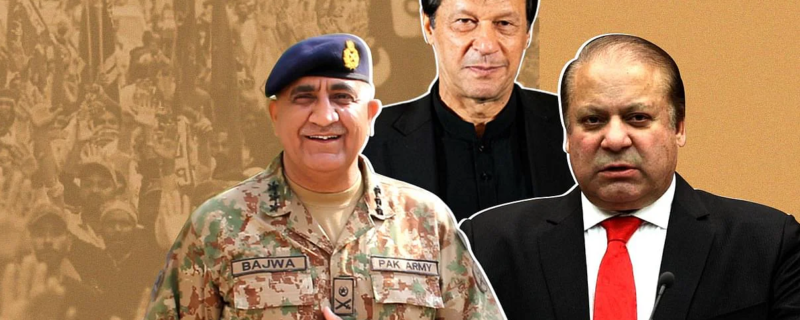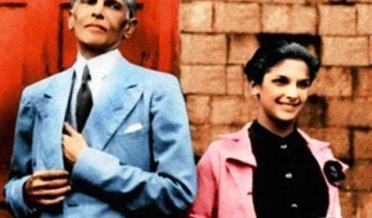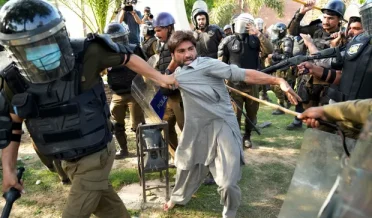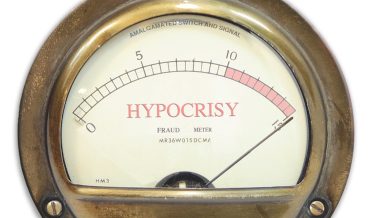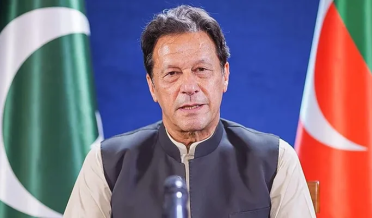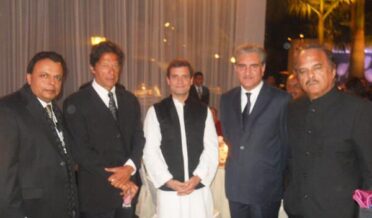Wajahat Ali Khan
Wajahat Ali Khan
The intense tension between the federal government and the opposition over the appointment of the army chief in Pakistan is not a new thing. These days or perhaps immediately after the establishment of Pakistan, the political role of the army and the appointment of a new army chief have been the cause of upheaval and controversy in the country’s politics. Even civil servants of the British government became free officers in the army of a newly independent country overnight.
From the first day these military officers started interfering in political and civil affairs. The political ambitions of the army became prominent in the life of the founder of Pakistan, which he repeatedly warned against. In view of Quaid-e-Azam’s towering personality, no general or bureaucrat could dare to challenge him, despite his desire, and the year of his death passed in a state of peace and harmony between the politicians, the army and the bureaucracy. Immediately after independence, the role of the military was limited to the professional field of defence and security. If the civil authorities called for help, the army would help them, but the use of the army to restore order had started to create many problems. The army played an active role in rescuing refugees from riots and resettling them. Because of this role, the military leadership started efforts to identify the army as the saviour of the country. On October 17, 1947, Governor General Quaid-e-Azam Muhammad Ali Jinnah ordered the army chief to send troops to Jammu and Kashmir, but the army chief did not obey the order and on October 28, Supreme Commander Akan Lake reached Lahore to withdraw the order. Persuaded. Contrary to Quaid-i-Azam’s political strategy, India deployed its army in Kashmir, then suddenly the same Chief of Army Staff suggested in his report that Pakistan would suffer if troops were not sent to Kashmir. This is the same idea that was expressed by the political strategist long before the military leadership, so in May 1948, military forces were deployed in Kashmir. Due to the delay India won, the army turned against the Pakistani Hindus of the civil government and the British and the Punjabis against the Bengalis. In these circumstances, the concept of a strong army became prominent. The Muslim League newspaper ‘Dawn’ wrote editorials and emphasized guns instead of bread and demanded a large and well-armed army to defend the Holy Land. The situation was different. At the time of Quaid-i-Azam’s death, the army was marching in Hyderabad. By declaring India as the number one enemy, the people were agitated.
To understand the intervention of the army in the political field as a right, we have to first consider the detailed events and facts from the appointment of Ayub Khan as the army chief by Prime Minister Liaquat Ali Khan to Pervez Musharraf, and see that is why the first martial law imposed, what was the role of Major General Sikandar Mirza and Ghulam Muhammad, Ayub Khan, Yahya Khan, Ziaul Haq’s “Shab Khoon” and then Pervez Musharraf’s seizure of power will also have to be looked at. How the nexus of the army and the judiciary paved the way for successive martial laws in the country and along with taking out the funeral of democracy, how the role of the politicians was maligned to keep them out of the political process., also accused them of bribery and nepotism, calling them seditious mobsters and suspending the country’s political process altogether by making obnoxious laws like elected bodies disqualification order EBDO impose in 1958. Under this order Ayub Khan primarily targeted East Pakistani politicians, especially Awami League, while leaving the Muslim League largely untouched. And then Prado-like order whereby the persons found guilty by the Federal Court or High Court, or a tribunal was introduced, under PRODA; or persons convicted of any offence and sentenced to more than two years imprisonment stood debarred from being candidates or members of an elective body, until 31 December 1966.
General Ayub Khan, the third army chief of Pakistan, was the first Muslim army chief who was retiring on June 9, 1958, but the then President Sikandar Mirza extended his post for another two years, a few months after Sikandar Mirza left Pakistan. Although the implementation of martial law, suspension of the constitution and dissolution of the assembly was not done by General Ayub himself, he was the first ruler of Pakistan who had absolute authority. On October 27, 1959, on the first anniversary of the revolution, General Ayub Khan’s cabinet presented him with the post of “Field Marshal” as a gift. It should be remembered that General Ayub Khan was not only the President but also the defence Minister of Pakistan until October 20, 1966, and thus this position remained with him for twelve years and during this time he received billions of dollars in military and economic aid, which was received in exchange for giving military bases to the United States which was the foundation of Pakistan’s ten-year period of magnificent development, corruption and nepotism in the country. A worst example had become.
We are all aware of the amazing feats shown by the military generals who later installed marshals in the country. In Pakistan, where the political influence of the military has increased in the last seventy-five years, army is in also doing many businesses, but politicians have never raised a finger in their business and let them do it all thinking that they will be silenced, but that cannot happen until the military’s national security narrative changes. Looking at the geographical location of Pakistan, it cannot be denied that we need a strong army to protect the borders, which our army is doing diligently, but the role of the army in politics can also the cause of the weakness of this institution.
Journalists also participated in the struggle for the restoration of democracy and freedom of expression during the period of dictatorship in Pakistan, some of the journalists who supported the dictatorship were looked down upon, but today the situation is sad.
‘The narrative that is being played on tv channels and to some extent in newspapers is created by the ISPR. This narrative has been adopted by journalists out of fear or fear or any other reason, if not deliberately. I think that it is neither fulfilling the requirements of journalism nor the responsibility that is imposed on journalists.
Martial law has been declared four times and many times unannounced martial law has been imposed in Pakistan, there is also an unwritten tradition that “DGISI” has been imposed by the Prime Minister as per his will and choice. According to tradition, the military headquarters sends the names of three to four lieutenant generals to the prime minister and the file is sent back with a consensus on one of the names. Seeing the general behaviour of Imran Khan while he was the Prime Minister, this tradition was broken and the corps commanders removed DGISI Faiz Hameed and appointed Lt. Gen. Nadeem Anjum as the new DGISI, the file which Imran Khan kept suppressed for many weeks, he refused to sign but then he had to sign anyway. No one knows the whole story of what happened behind the scenes, but it was revealed that Khan’s nexus with Faiz Hameed had come to light and that they were planning the political situation of the coming years.!
During the military era in Pakistan, amendments were made to the constitution and Nawaz Sharif has also become the target of such an amendment. Now Imran Khan, who is a product of the military establishment like Nawaz Sharif, and in 2018 Imran Khan also not became in power by the vote, he became the Prime Minister because of the “arrangement” of the Army. Were thrown out. Today, Imran Khan is also on the streets with the narrative “Why did you throw me out” he wants to reach power once again in any way, even if he must emerge from the military pot again. Therefore, it is the attitude of the politicians who are greedy for power that leads to the promotion of the political role of Pakistan’s military establishment.
It is impossible to deny the importance of the institution of government in social life. In modern times, the concept of welfare state has increased this importance. What type of government should a country have, what should be the relationship between the government and the people, and what should be the relationship between the government and its various institutions? These and other such questions have been settled by the western developed countries. Unfortunately, Pakistan is one of those developing countries that have not been able to agree on a form of government yet. Pakistan is one of the third world countries where the military has repeatedly seized power.
Much has been written about the role of the army in Pakistani politics. In the books written on this subject, the objective conditions for military intervention are often mentioned. Research institutes have also written many research papers on this topic.
But in my opinion, if we want to strengthen the separate status of political and military institutions in Pakistan like developed countries, then we should amend the constitution on an emergency basis and make it a law with great clarity that just like the military, political affairs should be made a law. Similarly, the authority to appoint the Army Chief should not rest with the Prime Minister, but with the army itself, just as a soldier up to lieutenant general is appointed by the army. The upheaval of caste likes, and dislikes will also end and the tradition of giving priority to the junior over the senior will also end!! The example of the appointment and transfer of judges in the judiciary is also in front of us, here also all the institutional decisions of the lower court and the high court are made.
The lessons of history and the situation demand that we realize our collective responsibilities to free the political system of the country from this leech for the sake of national welfare, national survival and political and economic stability, and instead of doing politics of deal and slack, do politics by making the principle of supremacy of institutions and public leadership a beacon. This is the real goal of the struggle of the founder of Pakistan. The end of the political role of the army will be the foundation of Quaid-i-Azam’s democratic and welfare Pakistan.

